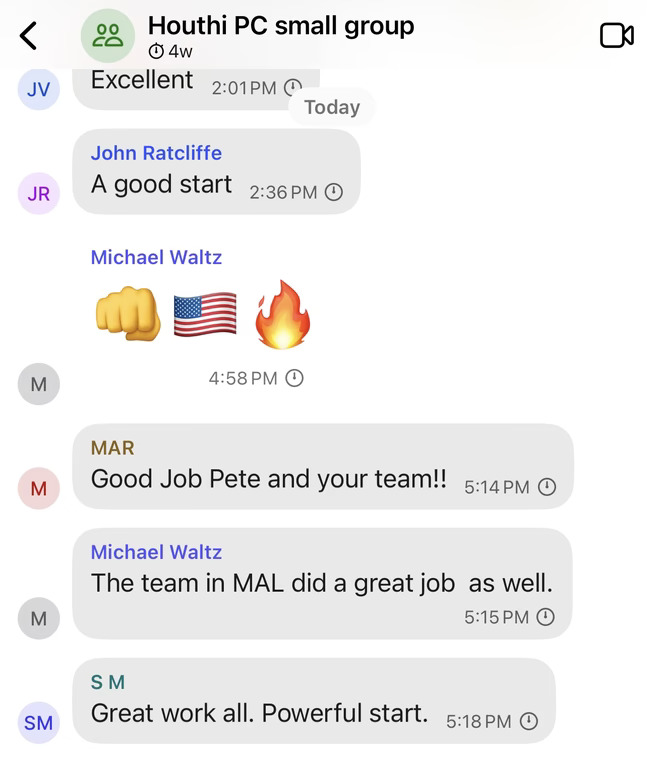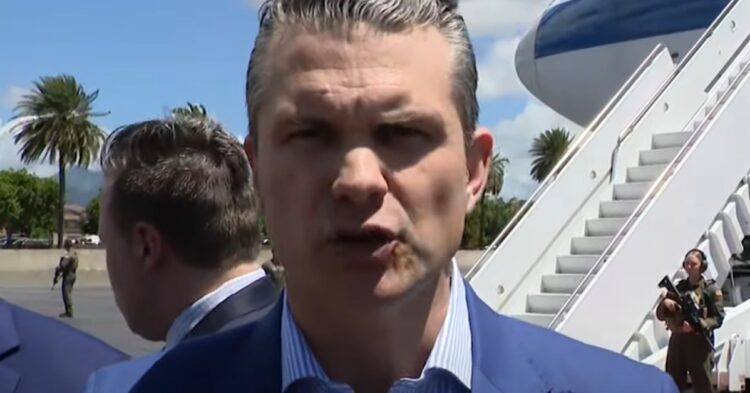Defense Secretary Pete Hegseth has responded to claims that he texted US war plans against Yemen in a Signal group chat.
This comes after Jeffery Goldberg, editor-in-chief of The Atlantic, wrote a piece yesterday on Monday March 24, claiming that he was mistakenly added to a group chat by White House National Security Advisor Michael Waltz where the military attack was being coordinated days in advance.
Goldberg explained what happened to him
Goldberg wrote a piece where he claimed that he had received a connection request from Michael Waltz on Signal, an encrypted text messaging app.
A couple of days later, he was added to a group chat named ‘Houthi PC small group’. Goldberg shared that he didn’t think it was the real Michael Waltz at first, nor did he assume the group chat was real. Instead, he thought it was a trap to spread disinformation.
The group chat was discussing attacks on Yemen
According to Goldberg, the chat which had 18 other members including US vice-president, JD Vance and the defense secretary Pete Hegseth, was discussing upcoming attacks on the Houthi rebels in Yemen, which in fact took place on March 15.
Goldberg only believed it was real when he saw it happen
In the damning article, Goldberg claims he had been added to the group chat on March 13 where he witnessed US military plans to bomb Yemen unfold.
He didn’t believe it was real until he read the message by an account labeled after defense secretary Pete Hegseth saying the attacks would take place in two hours, and then saw it actually happen.
Pete Hegseth has spoken out about the claims
Hegseth spoke to reporters about the incident and Goldberg’s claims, telling them on Tuesday 25 March, “You’re talking about a deceitful and highly discredited so-called journalist who’s made a profession of peddling hoaxes time and time again… This is a guy who peddles in garbage.”
Hegseth further denied Goldberg’s claims, saying, “Nobody was texting war plans and that’s all I have to say.”
The National Security Council spokesperson said they seem real

While Hegseth says the claims by Goldberg are untrue, National Security Council spokesperson Brian Hughes says the messages look to be real.
In speaking with the BBC, Hughes said, “At this time, the message thread that was reported appears to be authentic. We are reviewing how an inadvertent number was added to the chain.”
He added, “The thread is a demonstration of the deep and thoughtful policy co-ordination between senior officials.”
Goldberg then responded to Hegseth’s comments
Following Hegseth’s denial that he was texting U.S. military plans to the infamous group chat, Goldberg has since spoken to CNN in response, saying, “He was texting war plans. He was texting attack plans. When targets were going to be targeted. How they were going to be targeted. Who was at the targets. When the next sequence of attacks were happening.”
Goldberg added that he didn’t include the detailed plans in his story “because it felt like it was too confidential.”
The White House press secretary has since given a statement
White House press secretary Karoline Leavitt has given a statement on the incident, as Goldberg only came out with his claims yesterday on Monday March 24.
Her statement read, “The attacks on the Houthis have been highly successful and effective. President Trump continues to have the utmost confidence in his national security team, including National Security Advisor Mike Waltz.”



















































